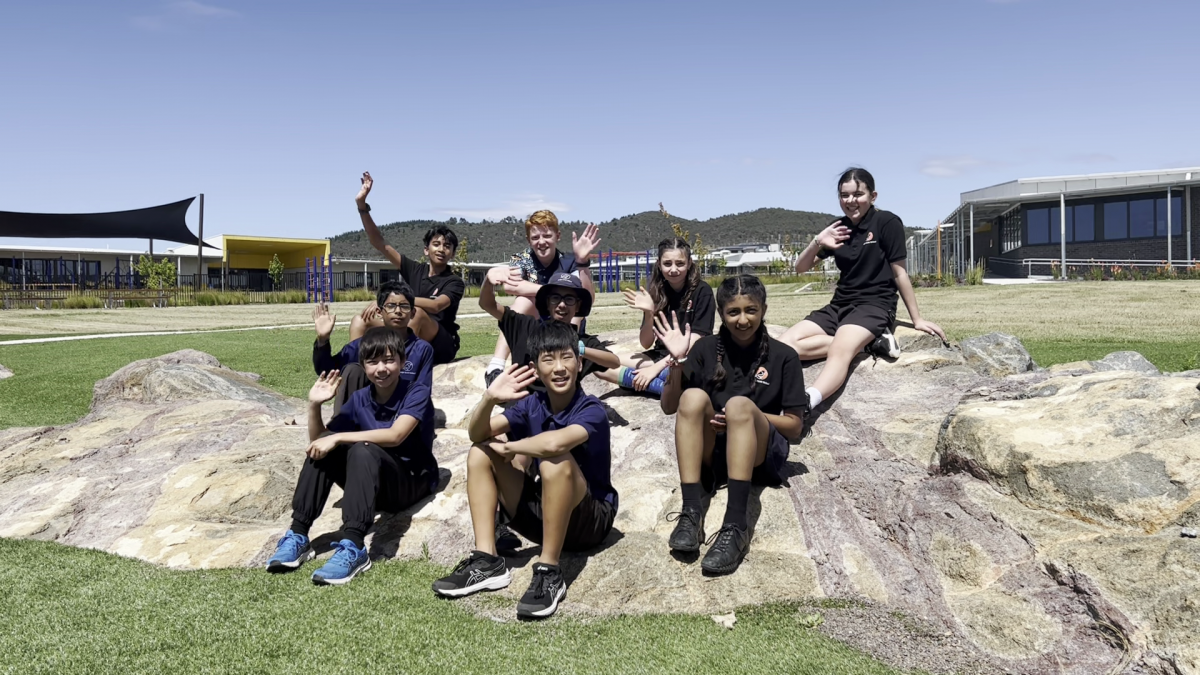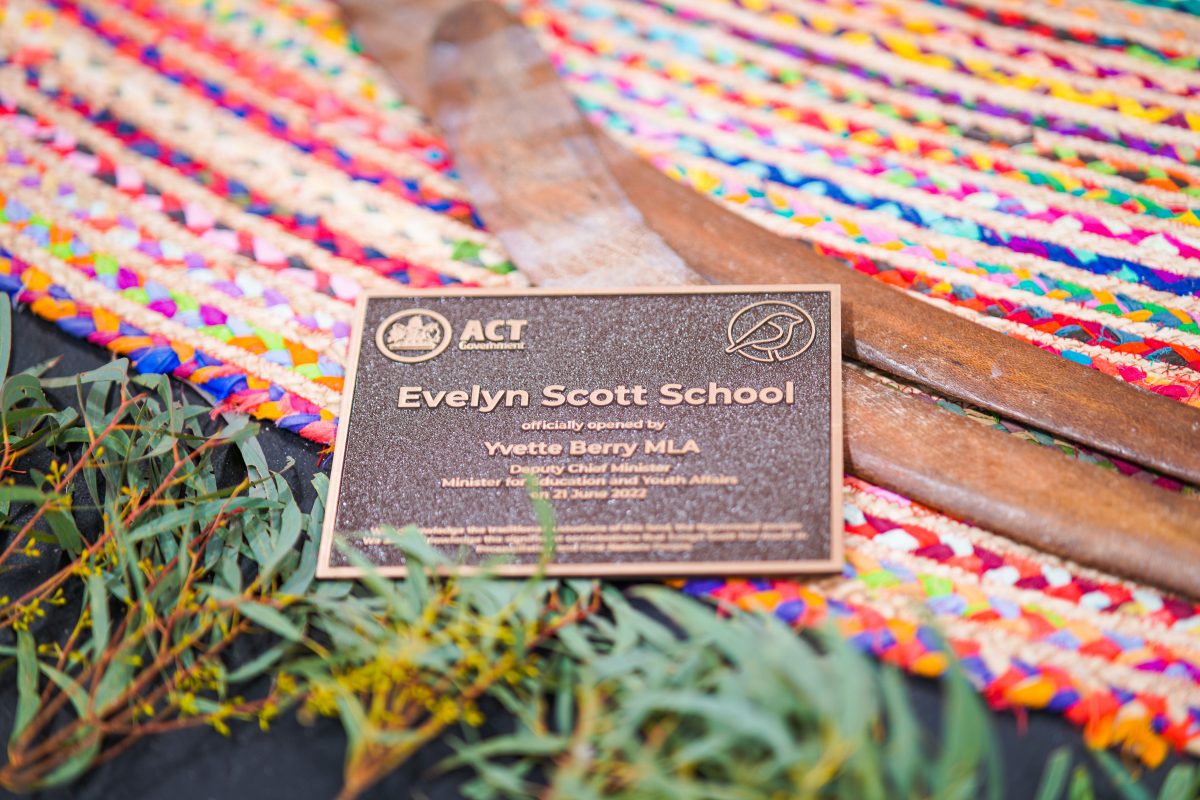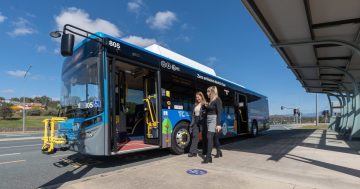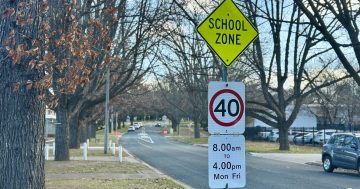
These year 6 students are excited to start in the brand new Evelyn Scott School next year. Photo: Lottie Twyford.
Next year, 100 students in years 7 to 10 will start at the swish new Evelyn Scott School’s senior campus.
When those doors are pushed open, they won’t be greeted by your typical classrooms.
That’s because this “future-focused school” is a little different.
Not only has it won awards for design and sustainability, but the ACT’s second zero-emissions school offers an alternative to traditional high school, with inquiry-based learning.
In this $70 million, state-of-the-art school, large, light-filled classrooms act as an extension of the teacher.
Walls can be moved to suit different activities and types of learners. Collaborative spaces are open for students to work together on group projects and students call teachers by their first names.
Teachers don’t have fixed desks. Instead, they have roving cabinets which move with them in the classroom.
The school boasts a dance studio, a music and drama room, state-of-the-art cooking rooms, woodwork and metalwork rooms, visual art and digital media rooms and science labs.
These specialist spaces are connected by a large area where students can collaborate on interdisciplinary projects.
In the library which is shared with the primary school, there’s a podcasting space. Just around the corner, there’s a presentation space with perfect acoustics.
Head outside and you’ll find an obstacle course, a hill to roll down and even covered sports courts.
With a focus on the natural world and connection, there’s even a piece of granite left in the playground which was unearthed during the excavation for the school.
Working hard to realise this vision alongside builders and architects was foundation school principal Jackie Vaughan, who couldn’t be happier with the end result.
“Our facilities are purpose-built … we have embedded a really strong future-focused learning continuum at this school,” she said.
“We start with play-based learning in preschool, inquiry-based learning in primary school and project-based learning in high school.
“Project-based learning is an interdisciplinary approach. It’s an engaging way for children to learn because we start with the children’s interests and then we build the learning around them.”
This approach has not only been shown to lead to better achievement of standards for students, Ms Vaughan explained, but it also reduces the stress of high school where students end up with all eight assignments and exams due at the same time.
Students will also collaborate across years, something Ms Vaughan said will be important as they build a culture at the new “connected” school and with new students coming from other primary schools.
A community room available for hire and a commitment by teachers to have met with every single new family has also helped foster those new connections in a new, growing area.
The job of recruiting staff will continue right up until the end of this year.
Teachers will also be supported by learning coaches to assist with the transition to inquiry-based learning.
Project-based learning is intended to minimise the number of teachers students come into contact with, so they won’t have a separate teacher for every subject as happens in many high schools.
Teachers are also expected to collaborate and work on assessments together.

Evelyn Scott School is the first in the Territory to be named after an Aboriginal woman. Photo: ACT Government.
The school is also the first in the ACT to be named after an Aboriginal woman – Dr Evelyn Scott. To keep that connection, one of her daughters, Charmaene Scott, now sits on the school board.
Priority enrolment areas for the high school are Whitlam, Denman Prospect, Molonglo, Coombs and Wright.
The high school has capacity for 600 students.
Original Article published by Lottie Twyford on Riotact.







